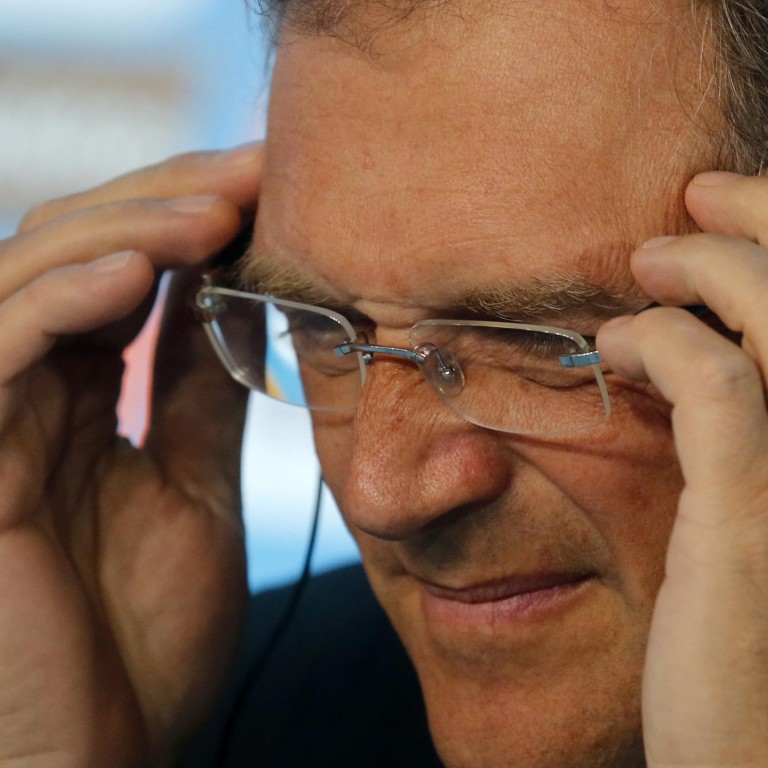
Fifa's Jerome Valcke warns World Cup fans of Brazil's travel hardship
Secretary general emphasises need for visitors to have well-organised travel plans in a country where safety and logistics are major issues
Brazil's huge distances, shaky infrastructure, security problems and varying climate have turned the World Cup into a logistical nightmare for teams, officials and the media.
But the secretary general of world soccer's governing body Fifa, Jerome Valcke, admitted nobody will face as many difficulties as the hundreds of thousands of visiting fans who face high prices for limited transport and hotels.
Valcke warned that fans could not just turn up in cities and sleep in their cars or at camping sites as they did in Germany eight years ago, while they could not simply hop on trains to get from one place to another because there is none.
You cannot just arrive with a backpack and start walking, there are no trains, you cannot drive [from one venue to another]
"The biggest challenge will be for them," Valcke said. "It will not be for the media, it will not be for the teams, it will not be for the officials, it will be for the fans.
"I know it's difficult to speak without creating problems … but my message to the fans would be just make sure you are organised when you go to Brazil.
"You cannot sleep on the beach, firstly because it's winter. Make sure you organise your accommodation. You cannot just arrive with a backpack and start walking, there are no trains, you cannot drive [from one venue to another].
"Don't just turn up thinking it is in Germany, that it's easy to move around the country. In Germany, you could sleep in your car; you can't do that [in Brazil]."

Brazil's preparations have been plagued by delays in building stadiums and other infrastructure problems.
Critics said Brazilian organisers made life more difficult than it should be by hosting the event in 12 cities when eight would have been enough.
Valcke said Fifa was persuaded to agree to so many host cities by then Brazilian president Luiz Inacio "Lula" da Silva.
"How do you say [in advance] it is not going to work?" said Valcke.
"It's true you multiply the risk by having more stadiums. But you face a situation where you have a government and a president, at the time it was Lula, who is explaining to you that the ... World Cup should be for the whole of Brazil and not just limited to a few cities.

"He said that the last time Brazil had the World Cup was in 1950, that this World Cup is in a country which is in development, that it is important to bring all the people together and to bring this energy to Brazil."
Logistics were further complicated because organisers decided teams would play their group games in three different venues rather than in the same place.
Organisers wanted their own team to play in as many cities as possible.
"It was also a request from Brazil because they did not want Brazil to play only in one corner of the country, and that they could not make Brazil travel and all the other teams just stay in one place," said Valcke.
He admitted that Brazil's huge size made a big difference but added: "You are not looking at all these factors to make these final decisions, you look more at the spirit of the competition."
Valcke said Fifa was aware of Brazil's limited air transport and airports, but believed that would be fixed in time for the event.
However, flights remain in short supply while work on new airport terminals has fallen behind in most of the host cities, heightening the risk of overcrowding and confusion.

